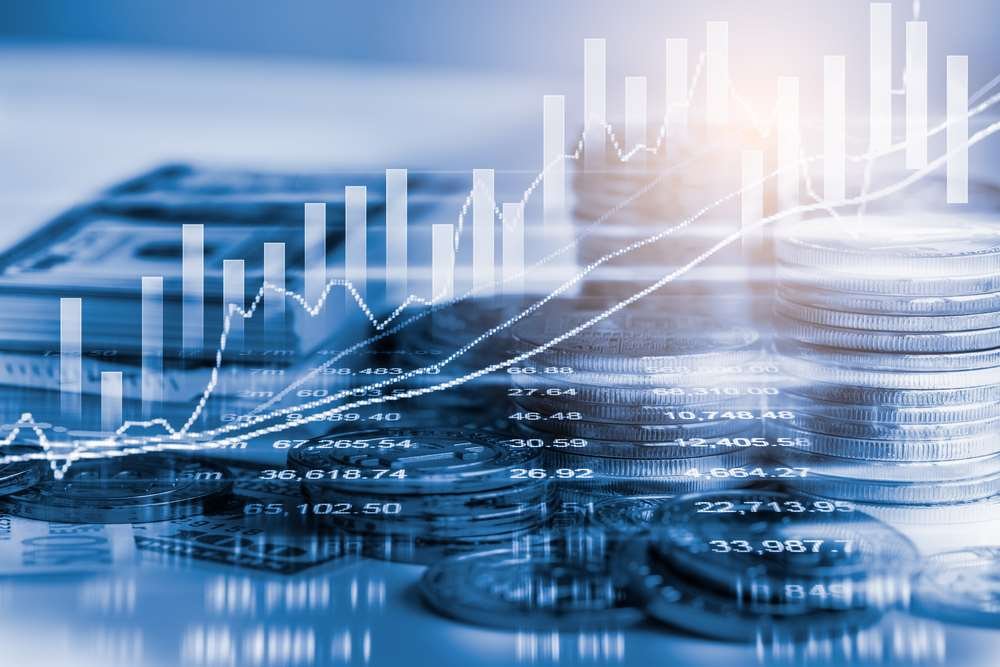How is COVID-19 affecting the financial markets
Published by Gbaf News
Posted on May 9, 2020
4 min readLast updated: January 21, 2026

Published by Gbaf News
Posted on May 9, 2020
4 min readLast updated: January 21, 2026

By Giles Coghlan, Chief Currency Analyst, HYCM
When evaluating the likely economic repercussions of the COVID-19 pandemic, little can be said with certainty. Some speculators are drawn towards a more pessimistic outlook, decrying that things will ‘never be the same’ and that a forthcoming recession will economically shake the world in ways we’ve never experienced before.
The reality, however, is not this bleak. Yes, there is still the potential for an unexpected new spike in cases or a second outbreak that would further exacerbate this pandemic’s economic damage; but an impartial analysis of recent reports suggests we may have already passed the COVID-19 peak and are now on the road to recovery.
This would be extremely welcoming news, but investors must always prepare for every scenario possible and recognise that the global financial market is an unimaginably complex entity. Given this, investors would do well to stick to either one of two overarching investing philosophies when deciding how to manage their portfolios during this global pandemic.
I’ll briefly outline these different methods below, as well as share some of my recent observations on key global financial market movements that investors should make themselves aware of.
Buy, stay or sell

Giles Coghlan
When one’s financial portfolio is facing the brunt of a global catastrophe, the decision to either hope for a strong post-crisis recovery or radically restructure your portfolio must be taken as soon as possible.
Each of these methods has its drawbacks. The more conservative investor will miss out on any possible opportunities from investments in areas that may thrive under lockdown, while those eager to re-structure could see huge losses when selling under-performing assets that experience a strong resurgence in the post-pandemic market recovery.
Ultimately, your decision will mainly be based on your own levels of acceptable risk; however other factors should absolutely be considered. Fluctuations in the value of different assets are now seemingly commonplace.
The ‘Golden’ era?
As the oldest asset class there is, gold has historically performed better than other investments in times of economic turbulence. As a general rule, market consultants will say that the more tangible an investment is, the better it will fair in a recession.
However, with COVID-19, this is decidedly not the case. Gold actually dropped in value just as lockdown measures were being implemented worldwide, primarily as it was then exiting a rush in demand due to political uncertainty over US and Saudi actions in the Middle East.
This drop was then furthered by a new rush of sellers as investors saw their precious metal portfolios drop in value just as we entered the kind of global crisis precious metals were thought they’d be able to survive.
Prices have now recovered throughout April, however, and gold is looking like an attractive investment opportunity once again.
Stocking up
UK-based stocks and shares had a bad end to Q1 2020. Whilst not nearly as dramatic as the free-falls seen at the New York Stock Exchange, it was the worst FTSE 100 quarter since 1987. With stock prices dropping by more than 20%, financiers labelled the FTSE 100 a bear market.
Now, over a month later, we can see investor confidence in UK assets flourishing once again. On the 29th of April the FTSE 100 rose past 6,000; representing a 22% gain. This +20% recovery means the FTSE 100 has become a bull market once again, showing that investors’ loss of confidence in UK-based assets was short-lived. However, expect May to show more market concerns over Q2 earnings and stock gains may well start sliding again.
However, some shares may still be undervalued as the markets struggle to fully acknowledge every aspect of COVID-19’s daily economic impact. Anyone considering a portfolio restructure should be investigating which stocks are well-positioned to recover stronger than others over the coming years.
Planning ahead
This pandemic may represent the greatest moment of uncertainty of the 21st Century so far. Ironically though, we can presume with some assurance that the market is cautiously optimistic about the coming months; at least according to the performance of the FTSE 100.
As mentioned above, any new major new public health developments would derail the outlined recovery and spook investors. As it currently stands however, investors everywhere should currently be considering how best to position their capital once COVID-19 is contained.
High Risk Investment Warning: CFDs are complex instruments and come with a high risk of losing money rapidly due to leverage. 71% of retail investor accounts lose money when trading CFDs with this provider. You should consider whether you understand how CFDs work and whether you can afford to take the high risk of losing your money. For more information please refer to HYCM’s Risk Disclosure.
Explore more articles in the Trading category











